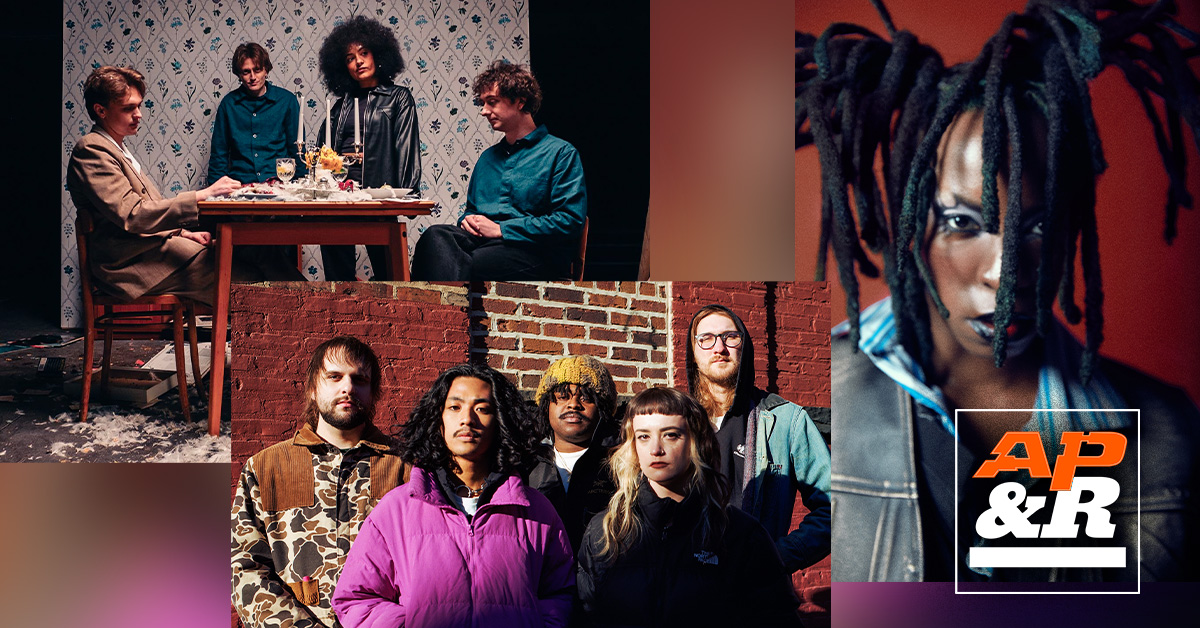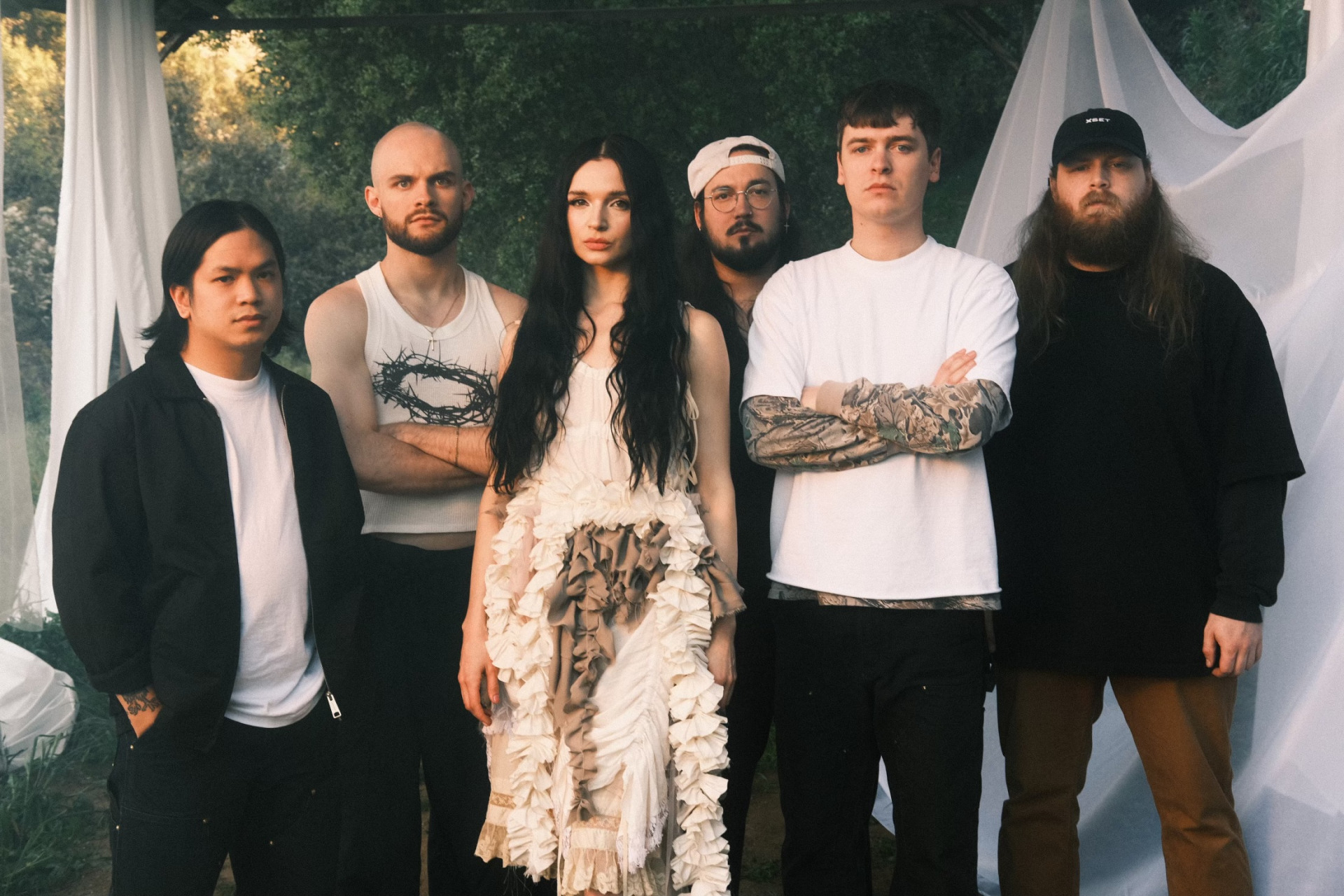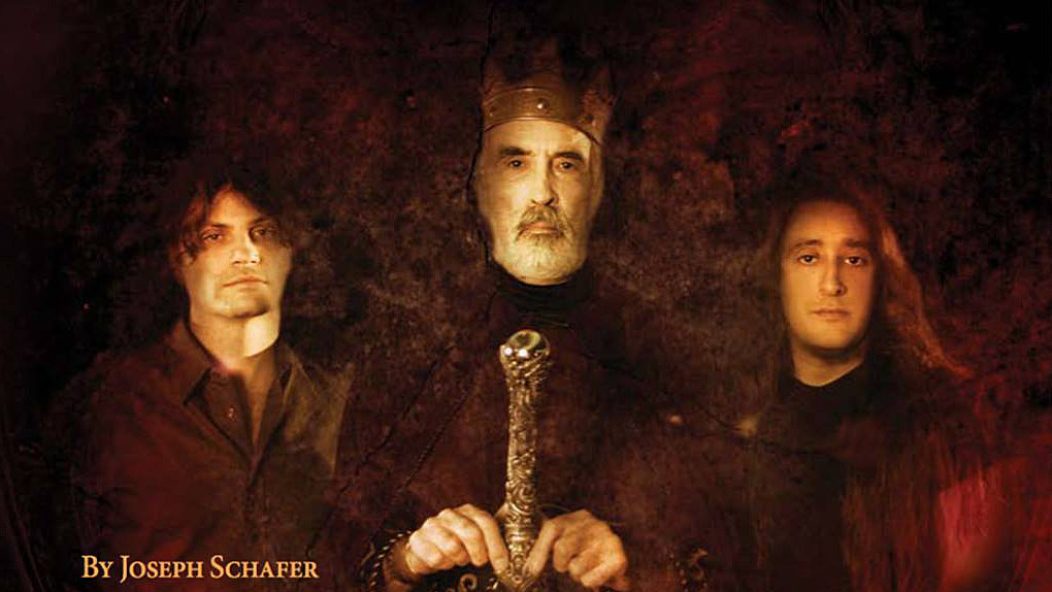
Christopher Lee, Metalhead
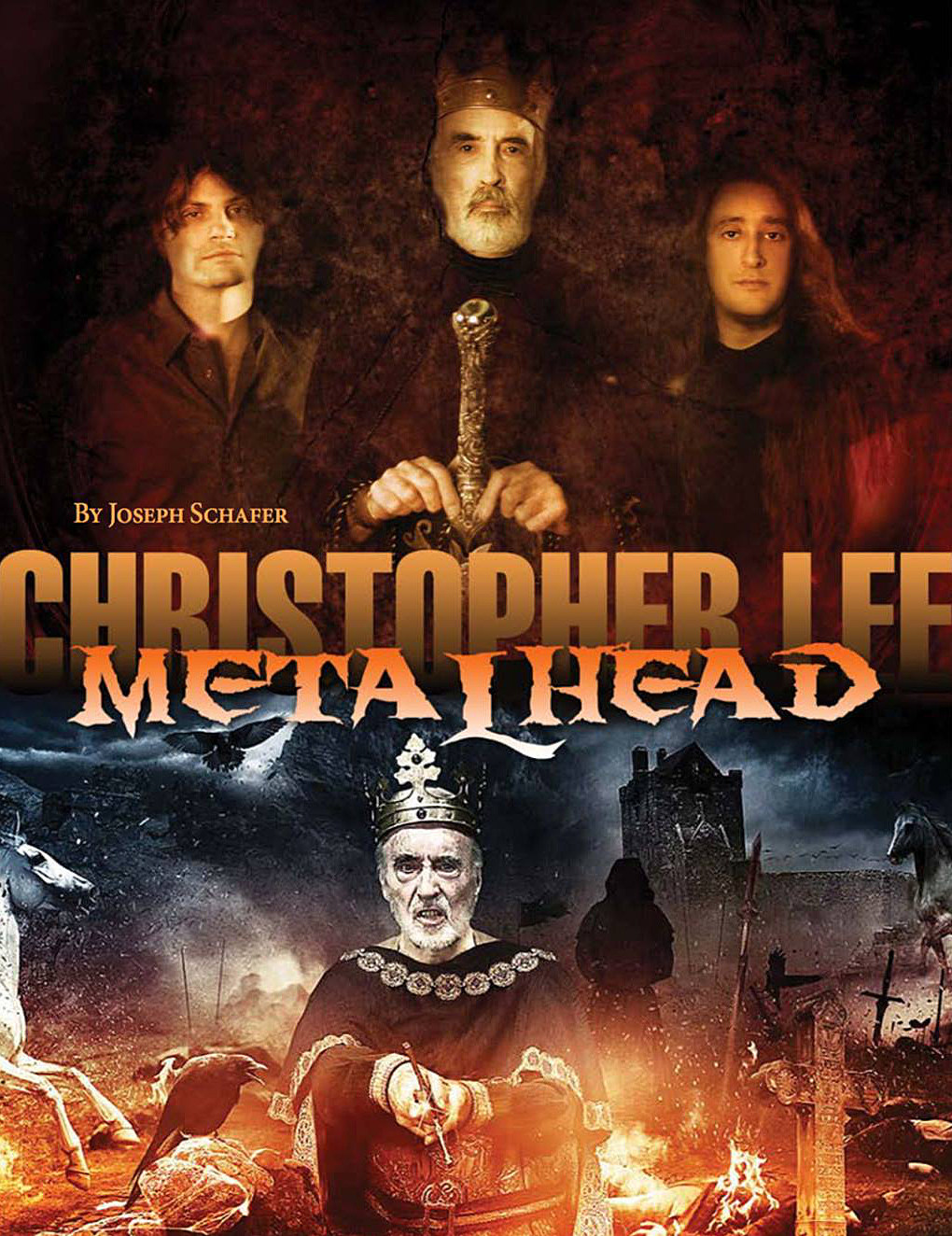
…
One year ago today, Sir Christopher Lee passed away. We remember his life today. This article originally appeared in Issue 25 of Diabolique Magazine, available for purchase here. It is reprinted here with their permission.
…
In his private and professional lives, Sir Christopher Lee took on nearly as many roles as he did in his films: author, opera singer, spy, and veteran, among others. Some might be tempted to add heavy metal enthusiast to that list. Lee sang and contributed spoken word passages to several heavy metal records between 2004 and his passing, and eventually received a Metal Hammer Golden God award for his contributions to the genre. While Lee’s musical endeavors are less well known than his cinematic roles, the zeal with which he purused these projects (he released a solo album in 2013 at age 91) suggests a deep commitment to the genre.
While it’s easy to imagine that Lee harbored some kind of longtime rockist views, closeted in the face of stodgy British social mores only to come out guns blazing when emboldened by old age, that picture isn’t accurate. Lee’s transition from screen actor to celebrated rock star came at a pivotal moment in his late career, and was informed as much by his knack for personal branding as his taste in music.
As it turns out, metal came to Lee, not the other way around.
The person most responsible for the existence of Lee’s career as a metal musician is probably Luca Turilli, the guitarist of the Italian band Rhapsody. A virtuoso guitarist and arch conceptual songwriter, Turilli found himself in a creative slump in 2004, following a string of increasingly successful albums. At that time, Rhapsody had just changed their management team, as well as completed the long, ongoing storyline which Turilli wrote and which ran through the band’s early career.
“We took a pause,” Turilli remembers of that period. “We were even deciding [whether] we were going to use the fantasy themes or to do something completely different. At one point I said, ‘If we could do something special and be able to do something really serious, dramatic in the fantasy world, then, I would go on with the saga. I would build a new chapter and evolve the story, a little bit like [J. R. R.] Tolkien, the same way.’” Tolkien wound up being the watchword for the second part of Turilli’s career, and the name that brought he and Lee together.
…
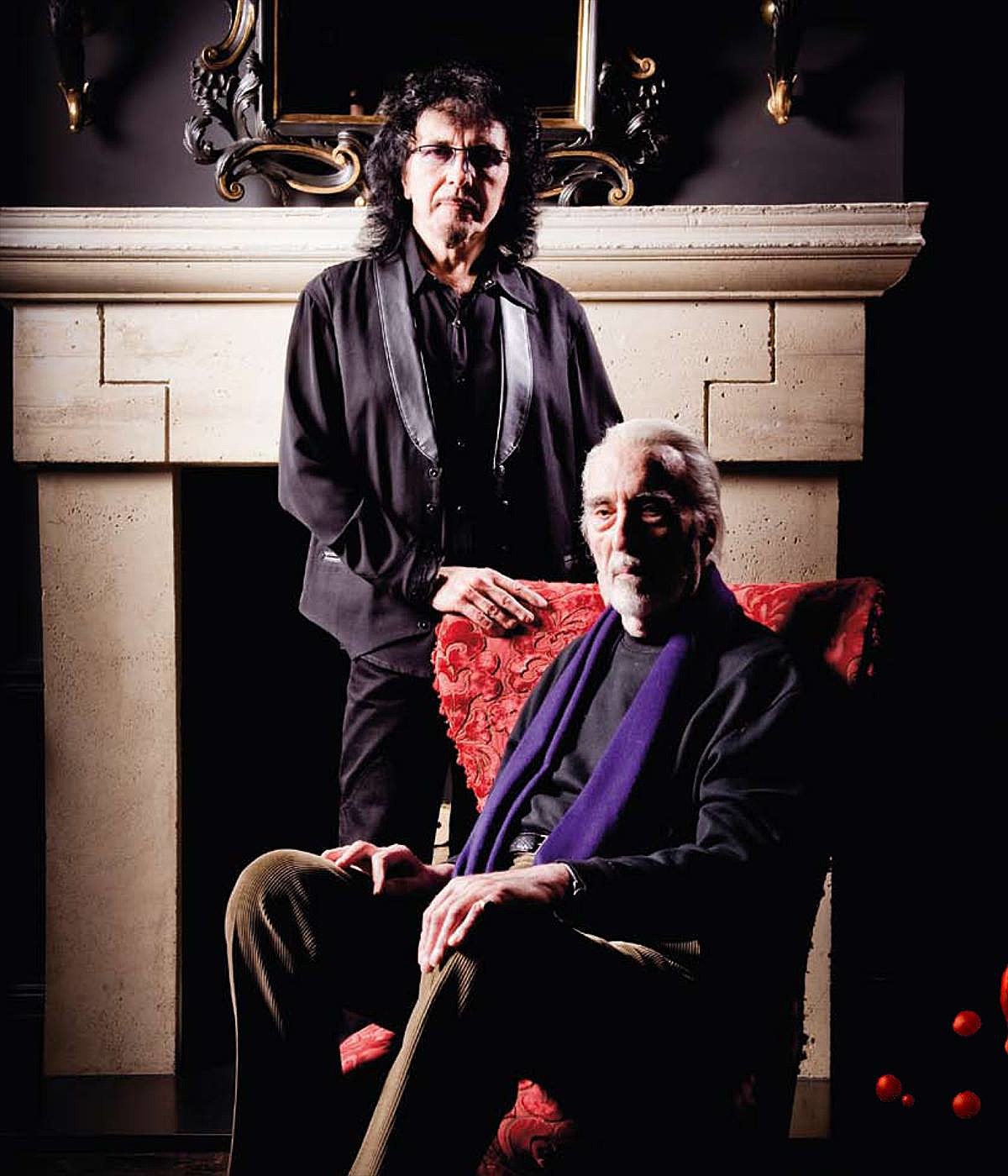
…
At that time, Turilli found himself obsessed with watching Peter Jackson’s then recently completed Lord of the Rings film trilogy on DVD. He was already familiar with Lee as an actor — “I never loved the young faces in Hollywood, these kind of teenager movies, I always loved these big, particular faces like Robert Deniro, Clint Eastwood, these big important faces. Christopher Lee was one of those, of course,” he says — but had never heard Lee’s voice. Deciding to watch Jackson’s films in English (as opposed to an Italian dub) gave Turilli the idea that would both take Rhapsody forward and make a metal god out of Lee.
“We had this new management and we had some money to invest,” Turilli remembers. “So I said, ‘Could we get Christopher Lee or Ian Mckellen?’ We asked our management and they made a couple of phone calls. […]. After one month or two months, we thought the idea was dead, but Christopher Lee’s agent called me interested.” Two weeks later, Lee had a meeting with Rhapsody in his datebook, and Turilli was locked in his home writing what would become maybe the most significant album of his career, Symphony of Enchanted Lands II: The Dark Secret, a heavy metal album anchored by Lee’s narration.
Turilli and his bandmate, Alex Staropoli, met Lee in London sometime in early 2004. “He made us comfortable immediately,” Turilli remembers. Lee spoke to the musicians over dinner in their native Italian, making their collaborative process easier. “He told us anecdotes about all these movies. He loved to talk and explain things.” Lee blabbed about movies, confirmed again that his favorite role was Lord Summerisle in The Wicker Man, and after a while Turilli explained his storyline. Later Lee asked to hear some of the music.
At that point in time, Lee was probably the most famous that he’d ever been, but was also in his early eighties. He was keen to stay relevant to the younger audience that the Lord of the Rings and Star Wars franchises had opened up for him, and Turilli’s fantastic storyline, with its black-and-white conception of good and evil — not to mention Rhapsody’s symphonic approach to music — dovetailed well with the kind of roles he was taking. And in Europe, where metal never disappeared completely from the zeitgeist, Rhapsody were rising stars. Such a cameo would also establish Lee alongside Vincent Price, who worked with proto-metal patriarch, Alice Cooper, as a character actor who managed to transcend the still-crystallized boundaries of genre filmmaking into a more prominent role in pop culture through participating in the creation of popular music.
In other words, it would have been a decent proposition for Lee to work with Rhapsody, even if he didn’t actually like their music.
His choice was probably easier than it had to be, since Turilli played the least-metal pieces of his compositions for Lee. “They showed him the most orchestral parts. So he said, ‘I didn’t think heavy metal was like that. I like it!’” It’s important to keep in mind that Lee was already in his late forties when the first metal bands came into existence. It’s likely that his conception of metal was rooted in what he heard from superstar hard rock acts like Queen and Meat Loaf, as opposed to the sword and sorcery bands that directly inform Rhapsody. Still, there is a line of influence from Brian May to Turilli, and those great British rock groups performed in the tradition of one of Lee’s great loves: opera. “Lee’s big passion was opera,” Turilli confirms. “So he told us to be the narrator for us, to get to work with music, was something really cool for him.”
Not only did Lee say yes, but he entered the studio to record his narration the next day. Turilli remembers the session well: “He entered the studio and we expected to work the whole day. I gave him the part, it was a big, big list of sentences. So he read everything once — we thought it was just a warm up, you know? — and then he said, ‘It’s finished.’” Turilli laughs. “We kindly asked him to do it once more. So in two takes, everything was done. What I had expected to be an entire day’s work took 15 minutes. It really shows his great ability.”
Lee is not the only celebrity to lend his voice to the narration of a heavy metal record — Peter Cullen, the voice of Optimus Prime, for example, narrated on an album by The Monolith Deathcult. However, Lee’s brief collaboration with Rhapsody became an integral part of that album’s direction, as opposed to a more-or-less decorative interstitial role.
Rhapsody cemented their collaboration with Lee by inviting him to sing a song, “The Magic of the Wizard’s Dream,” as a duet with Rhapsody singer, Fabio Leone. The song is, for better or worse, a prime example of the common ground the band and actor shared: there’s barely any electric guitar or metal instrumentation on the song and, if not for the lyrics, the song could pass for a slightly opera-influenced rendition of an ‘80s power ballad. In other words it’s a prime example of everything rockist critics hate about heavy metal, as well as what committed underground metal fans hate about Rhapsody’s cinematic take on the genre. It’s not even a very indicative example of Turilli’s music, which usually showcased his speedy and articulate guitar abilities more prominently. The best thing about the song is Lee’s singing, which actually fits the music very well.
…
…
Rhapsody released the song as a single anyway. It was so successful that they recorded it again in four different languages, and even filmed a music video for it with Lee and a live orchestra. Lee’s monologues were also featured in the album’s other single, “Unholy Warcry.”
For his part, Turilli saw the advantage to working with Lee, and leaned hard on the actor’s guest performances. “You have to imagine that at the time, there was about two to three years where we hadn’t released anything, so to come back with this surprise was the main point of discussion for everything. Everybody was so curious to hear his voice,” says Turilli.
Symphony of Enchanted Lands II was completed over the course of several months in several studios. At best, Lee worked with rough outlines of what became the final versions of Rhapsody’s songs. Turilli, for what it’s worth, had no idea what to expect from Lee in regard to the finished project.
“At first, I was very afraid [to hear Christopher Lee’s reaction to the record],” Turilli says. “I was very afraid because he narrated and he had heard the orchestral parts but when the album finally came out, that was the moment when he would hear the metal side of the band too. I was very worried, but we asked his management what he thought of it and they said, ‘He loved it and he wants to work with you again in the future.’ That was the magic moment for me. To hear that he wanted to go on being the narrator of the saga, that was the greatest moment of my life.”
The pairing was a success, at least for Rhapsody. Symphony of Enchanted Lands II started another long storytelling cycle for Turilli and preceded the band’s first live record. The band’s re-branding transition from simply Rhapsody to the more complex Rhapsody of Fire rests largely on the record’s performance.
Enough capital came to rest in the band’s coffers that they hired Lee again for their next record in 2006, Triumph or Agony, and its 2010 follow-up, The Frozen Tears of Angels. Manowar, a metal outfit much older than Rhapsody with an honestly bigger profile, caught on and hired Lee to narrate the 2010 re-recording of their debut. Lee became, in Turilli’s words, like a grandfather to the band, and their working relationship continued for half a decade. Lee wound up narrating the remainder of the Dark Secret storyline that Trulli pitched to him over dinner in London.
…
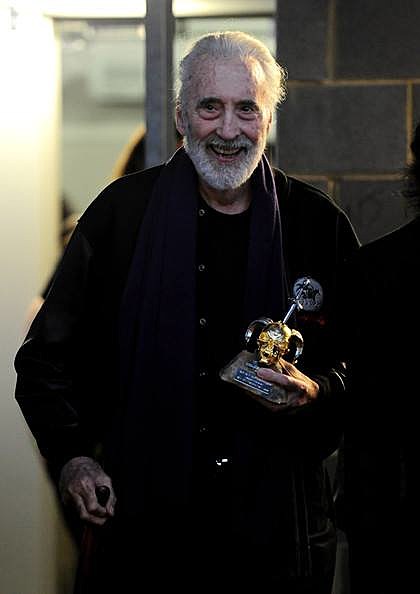
…
By the end, however, Lee had begun his own solo metal career. Charlemagne: By the Sword and the Cross, a symphonic heavy metal album helmed by Lee and pop composer Marco Sabiu, was released in 2010 and later won a Metal Hammer Golden God Award. Again, Lee’s take on metal isn’t what someone deeply invested in the genre would call excellent, but it is historic that a person so embedded in both mainstream culture — hell, at that point in time, a knight — played the genre both competently and with a straight face. Lee would follow up his album three years later with Charlemagne, the Omens of Death which is, for what it’s worth, better than its predecessor (that’s what he got for collaborating with Richie Faulkner, guitarist of Judas Priest).
Lee’s final piece of what could loosely be called metal — and music, period — was the narration in “The Last Vampire,” the introductory track to the self-titled album by The Hollywood Vampires, a rock supergroup helmed by Alice Cooper. In the end, Lee did work with the same man who made a rock icon out of Vincent Price, although nobody would hear the results until after he was interred.
Luca Turilli, the man who wound up giving the world its first taste of Christopher Lee: Metalhead, was promoting his album Prometheus on June 7, 2015, the day Lee passed away. “At first, I thought it was fake, because it has been happening a lot with actors lately. When I heard that it was real, it was one of the saddest days of my life. I remembered that I wrote immediately to the record company saying that we had to stop the promotion for a couple of days but I didn’t feel good trying to be excited about the album. It was terrible. It is like a part of you that goes forever, but the fact that we have him with as a voice on our album is something magic. I don’t have any strange feeling when I listen back to his voice on our albums, now.”
Turilli still performs the songs he worked on with Lee as part of his solo-ish act, Luca Turilli’s Rhapsody. For lovers of symphonic heavy metal, and Lee’s work, it is one of the last ways that you can hear the actor’s warm, powerful bellow issuing forth from a speaker system and, barring cinematic revivals of Lee’s work, it’s likely to stay that way. “People want to hear them live. I asked myself, ‘What to do now?’ I decided to keep his voice because I think it is just great,” Turilli says. “It is great that people can hear his voice, that magic tone. Even if the flesh goes away, the spirit stays. The energy behind those words is there for the people.”
The spirit stays. The greatest strength of heavy metal music is its use of dramatic sound to embody forces larger than life and address issues that are more often the territory of philosophy and religion. Its characters are larger than life, but embody everyday emotions that are simply magnified, from Meat Loaf’s consciousness of his own demise in “Bat out of Hell,” to Freddy Mercury’s Faustian remorse in “Bohemian Rhapsody,” to the silent wisdom of the wizard in Black Sabbath’s song of the same name. These would have all been fitting characters for Lee, a man who embodied zeal that persists beyond death in Dracula, faith that defies the limits of human kindness in The Wicker Man, to a Sisyphusian struggle for real and lasting power in The Lord of the Rings. Lee was born to be a metalhead, even if he was born before the music itself was, and while his career as a musician will never overshadow his work as an actor, the story of Christopher Lee: Metalhead is the more unique and unlikely story. Maybe it’s the most unique role he ever played.
…
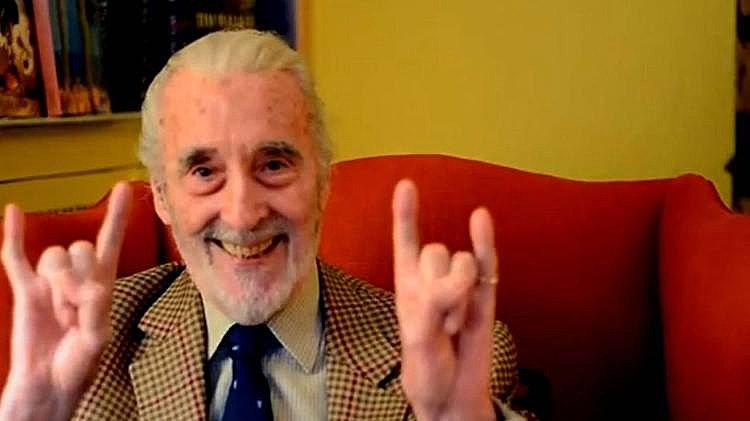
…
Thank you Max Weinstein, Joe Yanick, and Dima Ballin at Diabolique for their assistance making this article a reality.
Follow Diabolique on Facebook, on Twitter at @DiaboliqueMag and on Instagram at @diaboliquemag.
…

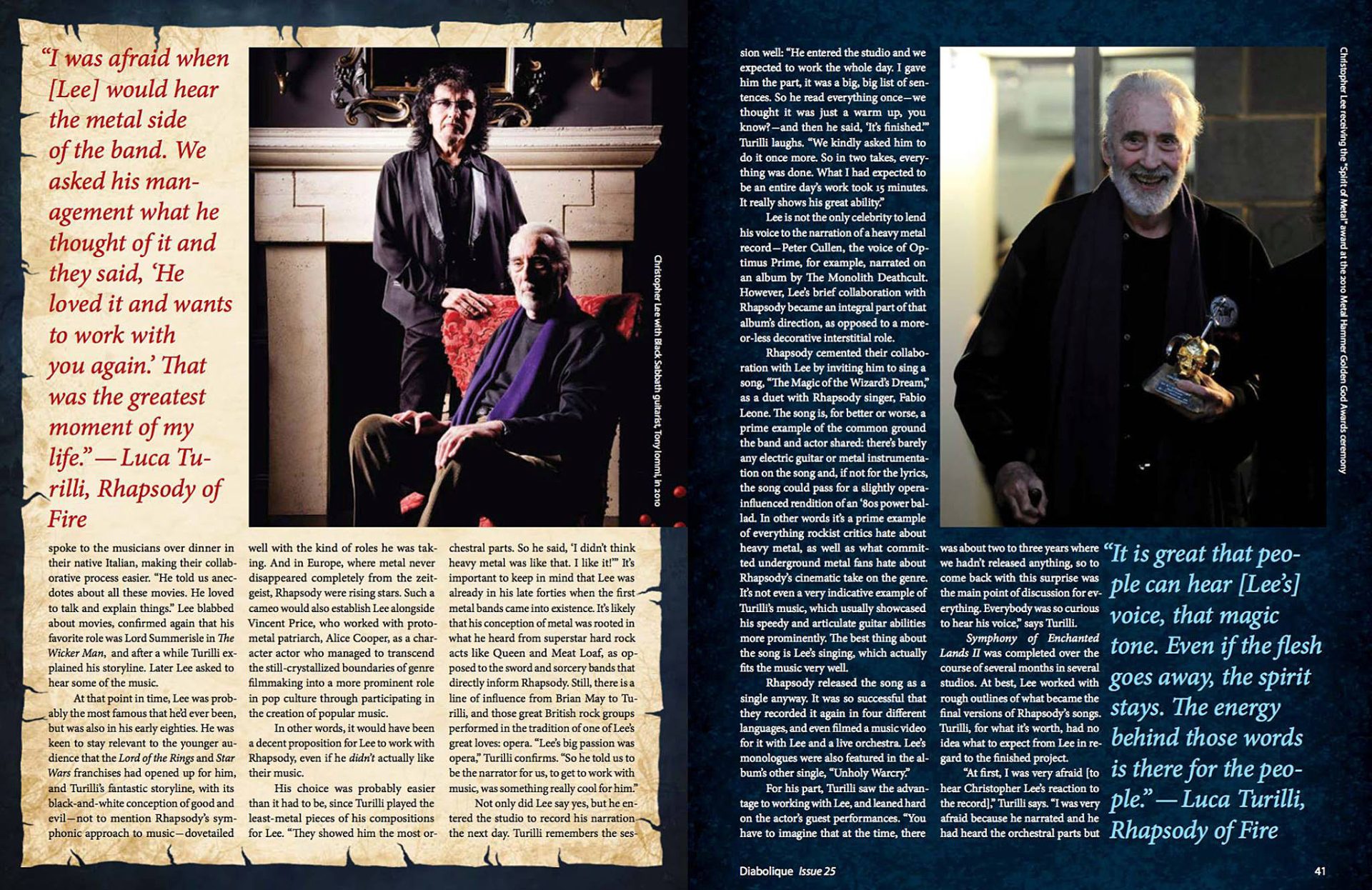
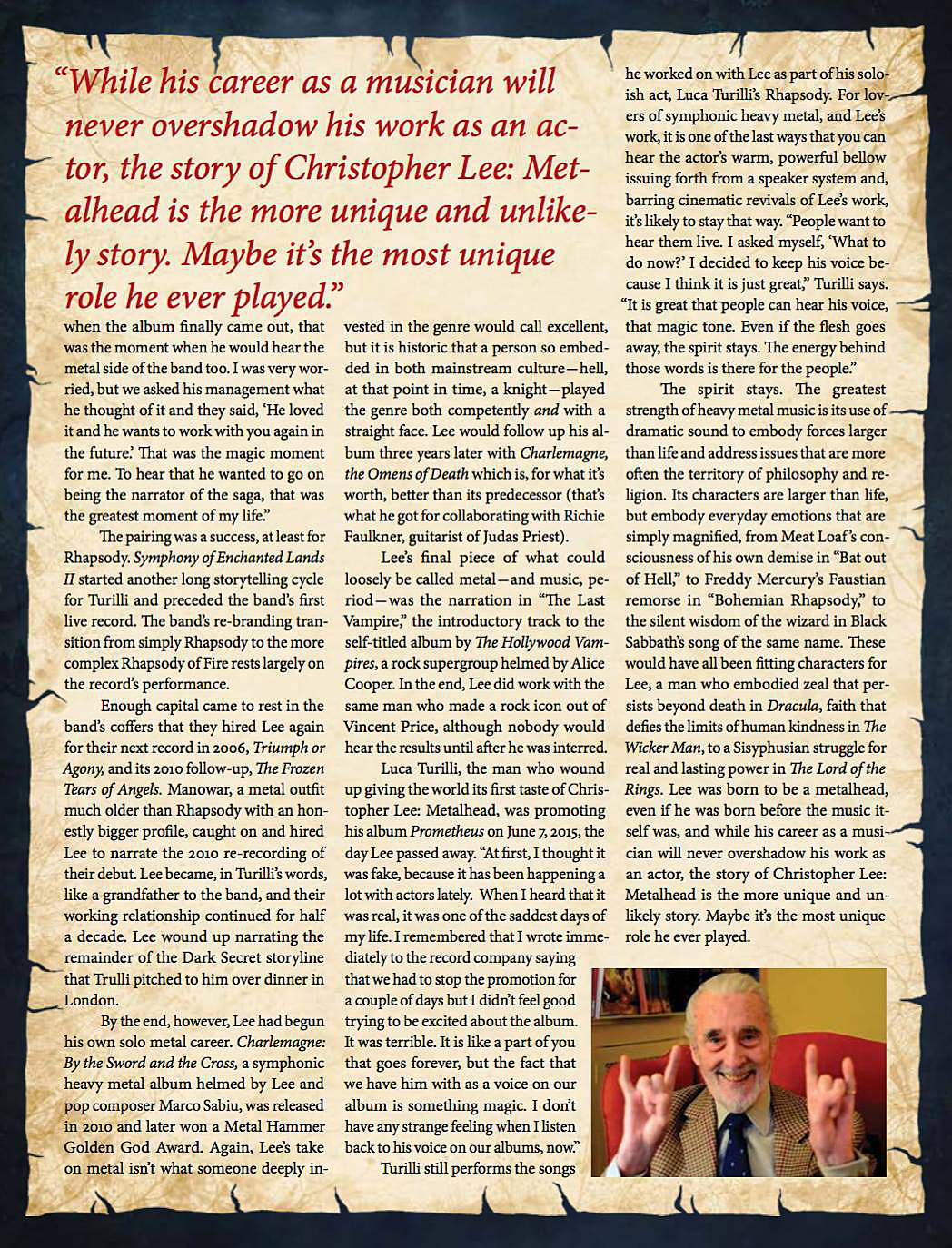
…







